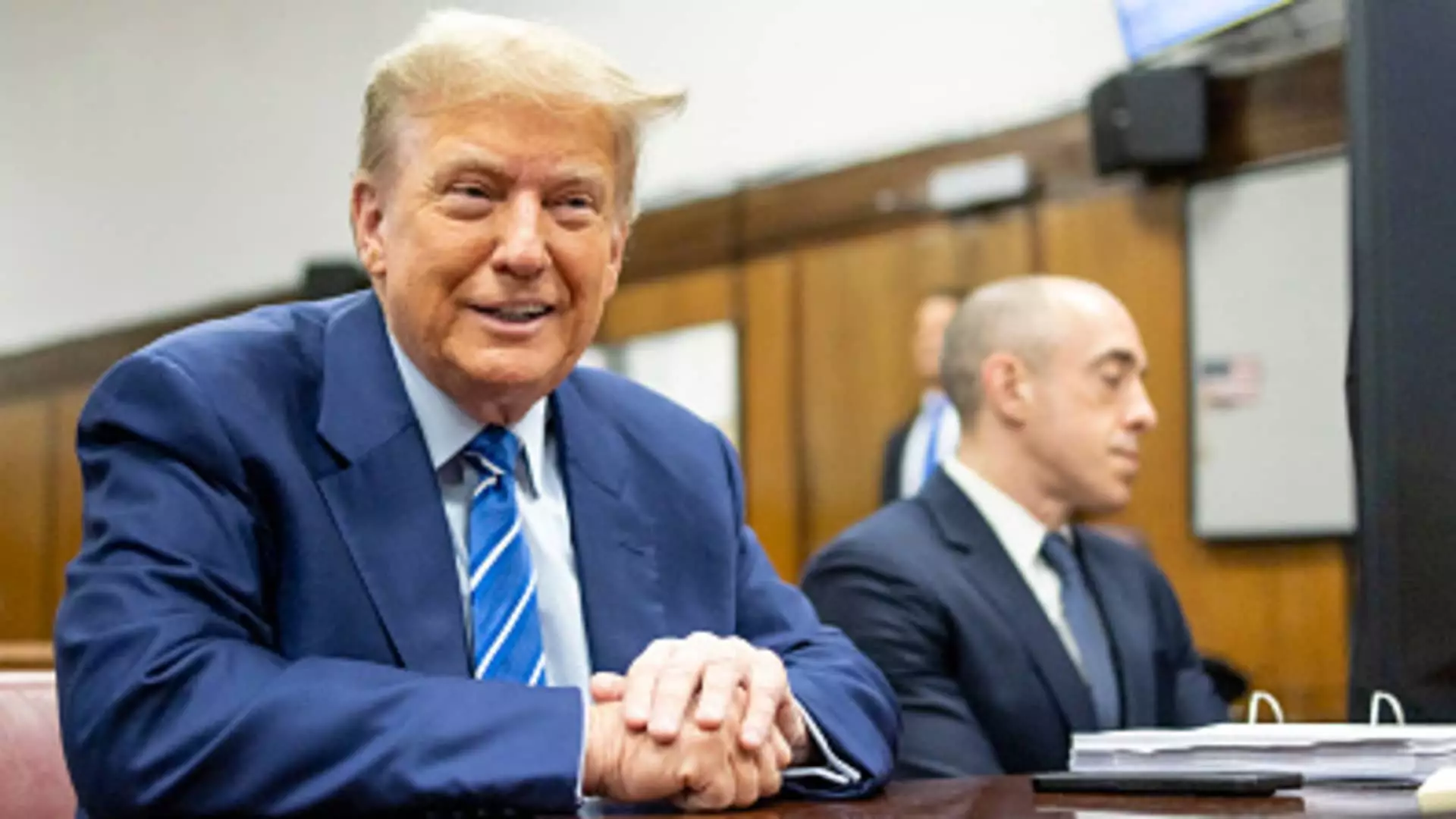In a significant turn of events, a New York judge has indefinitely postponed the sentencing for President-elect Donald Trump in the highly publicized hush money case that has captivated the nation’s attention. The proceedings, presided over by Judge Juan Merchan, have brought to light a multitude of complexities surrounding the allegations and the political ramifications associated with Trump’s presidency. The initial sentencing date, originally set for next Tuesday, has been canceled, allowing Trump’s legal team to argue for a dismissal of the case.
The case revolves around 34 charges of falsifying business records, a matter deeply entwined with issues of accountability, legality, and the potential impact on the 2024 presidential elections. What lies at the heart of this case is the accusation that Trump’s former lawyer, Michael Cohen, paid $130,000 to porn star Stormy Daniels to keep her silent about an alleged affair prior to the 2016 presidential election. Trump has consistently denied any wrongdoing, insisting that the payments were made out of personal concern and not as part of any illegal transaction.
As the situation unfolds, Trump’s attorneys, including Todd Blanche and Emil Bove, are pushing for the case to be dismissed outright, arguing that just as a sitting president is immune to criminal prosecution, so too should a president-elect be afforded similar protections. This complex legal argument highlights the intersection of law and politics, raising questions about the balance of power and the limits of legal accountability for public figures.
Prosecutors at the Manhattan District Attorney’s Office, however, have expressed their opposition to the dismissal efforts, underscoring the contentious nature of this trial. The DA’s support for postponing the sentencing indicates a desire to carefully evaluate the motions submitted by Trump’s legal counsel, yet their firm stance against dismissal reveals a commitment to pursuing accountability in this case.
The implications of this postponement are massive—not only for Trump’s legal standing but also for the broader political landscape. As Trump transitions into his new role as president, the uncertainty surrounding these legal proceedings could influence public perception and his party’s strategy going into the next electoral cycle.
A Broader Context of Legal Challenges
The New York hush money case is not the only legal challenge facing Trump. It’s one of several criminal matters that have emerged in recent years, including federal inquiries related to the handling of classified documents and attempts to overturn the 2020 election results. Trump’s recent victory further complicates these proceedings. With expectations high for his administration, the future of these cases hangs in a precarious balance.
Special Counsel Jack Smith, tasked with overseeing the federal cases, may find his prosecutorial efforts hindered once Trump assumes office on January 20. The political landscape will undoubtedly shift, posing unique challenges for legal accountability as the new administration may seek to undermine ongoing investigations.
The possibility of Trump ousting Smith adds yet another layer of tension. Resignations from Smith’s team before his potential termination could signify a strategic retreat, altering the dynamic of these legal battles. Moreover, an ongoing state-level case in Georgia adds to the uncertainty surrounding Trump’s legal future—a matter that again raises questions about the robustness of legal accountability for individuals in positions of power.
As we analyze the recent developments surrounding Trump’s hush money case and execute a broader exploration of his current legal tribulations, it becomes increasingly clear that this scenario evokes profound implications for both law and politics. The tension present in the courtroom reflects the intricate dance between legal justice and political maneuvering, illustrating the significant challenges facing today’s democracy.
The indefinite postponement of sentencing may provide a temporary reprieve for Trump, but it also raises critical questions about the future of legal accountability for powerful figures. In navigating this tumultuous landscape, the outcomes of these legal battles will undoubtedly resonate far beyond the courtroom, shaping not only Trump’s legacy but the ethical standards expected of public officials in a democratic society.

Leave a Reply